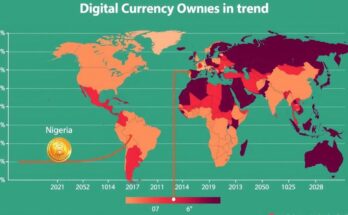Columbia University and the IICA are launching an initiative to reshape the narrative surrounding the role of agriculture in Latin America, focusing on its significance in addressing global challenges such as food security, climate change, and sustainability. Key discussions featured prominent leaders and experts, aiming to promote a realistic vision that incorporates the contributions of youth and women in the agricultural sector. This initiative coincides with global events and aims to prepare for upcoming forums like COP 29 to advocate for agricultural innovations and sustainability within the region.
Columbia University and the Inter-American Institute for Cooperation on Agriculture (IICA) have embarked on a collaborative initiative to formulate a new narrative that underscores the significance of agriculture in Latin America. This effort aims to articulate the strategic relevance of the agricultural sector over the next three decades, particularly in light of escalating global challenges. A distinguished assembly of experts from various domains—including public policy, private sectors, and academia—gathered in New York to devise a comprehensive roadmap. Central to these discussions were critical themes such as food and nutritional security, environmental sustainability, and energy security. The overarching objective of this initiative is to fortify the agri-food systems across the region, positioning them as vital contributors to addressing global issues posed by a burgeoning population, geopolitical conflicts, and the ongoing climate crisis. This formative dialogue transpired at Columbia University’s Forum, renowned for shaping international public discourse. Notable participants in this conversation included, among others, Guyana’s President Mohammed Irfaan Ali, IICA Director General Manuel Otero, Columbia’s Climate School Dean Jeffrey Shaman, and NASA’s Senior Research Scientist, Cynthia Rosenzweig. The discussion was expertly moderated by Izabella Teixeira, Brazil’s former Minister of the Environment and a current Special Advisor to IICA for the G20 and forthcoming COP events. This joint effort reflects a proactive stance by Columbia and IICA to craft a realistic perspective on Latin America’s potential as a key provider of food and ecosystem services, considering its rich natural resources and a framework conducive to innovation and technology. The initiative seeks to foster interaction between agriculture, climate change, and biodiversity conservation, urging the formulation of new public policies that promote efficient resource utilization, mitigate greenhouse gas emissions, enhance resilience, and augment productivity. The session, titled “Creating a new narrative for agriculture in Latin America: Resource-efficient agri-food systems for the health of people and the planet,” coincided with significant events such as the United Nations General Assembly and Climate Week in New York. This forum has established preliminary guidelines for a document that will clarify the contributions of Latin American agriculture to food security and environmental integrity. President Irfaan Ali eloquently remarked on the necessity of evolving beyond conventional agricultural paradigms, advocating instead for an integrated narrative that recognizes the critical roles of youth and women, whose involvement is paramount for both societal well-being and economic growth. Likewise, Manuel Otero highlighted the persistence of outdated narratives that fail to represent the dynamic realities of rural Latin America, which often prioritize quantity over quality in agricultural output. He emphasized the importance of fostering connections between producers and consumers in a more eminent vision for agriculture that considers the broader societal framework. Plans for advancing this narrative include engaging with government bodies, industry, and civil society during key global forums for environmental and political dialogue, with the United Nations Climate Change Conference (COP 29) in Azerbaijan being a notable upcoming event where IICA will represent agricultural realities in the Americas. Teixeira pointed out the dual crises of climate and nature that necessitate collective dialogue among Latin American nations, particularly concerning non-tariff barriers to trade related to environmental considerations. Walter Baethgen, a Columbia researcher, emphasized the significance of understanding the audience for the new narrative, stating, “The challenge is immense because we know that the population, even in countries that are major agricultural producers, lacks awareness about its importance.” The consortium concluded that both scientific inquiry and innovation are essential in meeting modern demands for healthful food, reflecting shifts in dietary habits, lifestyles, and the additional stressors stemming from climate-induced migration and armed conflicts.
Agriculture plays a crucial role in Latin America’s economy and food security. This initiative by Columbia University and IICA arises in the context of mounting global challenges, such as climate change, population growth, and political instability. It seeks to address the need for a substantial narrative that not only recognizes agricultural contributions but also promotes sustainable practices that align with global priorities on health, nutrition, and environmental conservation.
In conclusion, the collaborative efforts of Columbia University and IICA to redefine the narrative surrounding agriculture in Latin America signify a critical advancement in acknowledging the sector’s multifaceted contributions to global challenges. By engaging a diverse set of stakeholders and emphasizing sustainability and innovation, this initiative sets the stage for a more resilient agricultural framework that can adapt to evolving demands and secure food systems for the future.
Original Source: caribbeannewsservice.com




